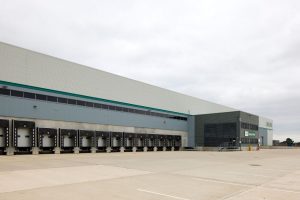Government needs to reconsider business rates changes say logistics leaders
The Government’s overhaul of business rates is flawed and will damage the very sectors it is aiming to support if it goes ahead with higher business rates multiplier to all properties with a Rateable Value above £500,000 warned a coalition of the UK’s leading logistics and industrial long-term investors and developers.

By Liza Helps, Property Editor, Logistics Matters
IN A JOINT response to the UK Government’s Transforming Business Rates consultation, investor developers including SEGRO, Prologis, Tritax Big Box, Logicor and Indurent have called for a more balanced approach to reform.
The group argues that the proposal to apply a higher business rates multiplier to all properties with a Rateable Value above £500,000 would have unintended consequences, disproportionately affecting high-street retailers, manufacturers and SMEs that rely on efficient logistics infrastructure who would absorb the financial burden.
Analysis of over 570 large buildings in their portfolios reveals that only 11% of space is occupied by ecommerce businesses, while 66% is used by transport, logistics, manufacturing and retail occupiers. “This blanket approach risks driving up costs across supply chains, fuelling inflation and deterring investment into precisely the sectors the Government wants to grow,” the group states in its response.
Independent research from the British Property Federation (BPF) and Avison Young has highlighted the broader economic risks of higher business rates, finding the increase in business rates could lead to £2.3bn in lost economic output, a £1.5bn reduction in Gross Value Added, a £170m fall in wider tax revenues, and the loss of 22,000 jobs.
The group also raise concerns that the reforms could stall progress on the UK’s clean energy transition. Developers are currently investing in upgrading older buildings to high environmental standards, over 830 buildings were improved last year alone, but fear that enhancements that increase a property’s rateable value above the £500K threshold will now be penalised. This could delay renewable energy initiatives and discourage sustainability-focused upgrades.
The coalition strongly urged the Government to reconsider the proposed changes to business rates and adopt a fairer, more balanced approach that supports both the high street and broader economy, including to:
Replace the proposed flat threshold with a banded or progressive system to avoid “cliff-edge” disincentives;
Extend empty property relief from the current period to 12 months to support refurbishments aligned with net zero goals;
Introduce reliefs or incentives for sustainable upgrades, such as lower multipliers for highly energy-efficient buildings;
Provide longer-term certainty on rate setting to support regional investment and job creation.
“Without a more balanced approach, these reforms could ultimately weaken the very industries they seek to support, placing pressure on SMEs, delaying sustainability upgrades, and harming the high street,” the group concluded.






